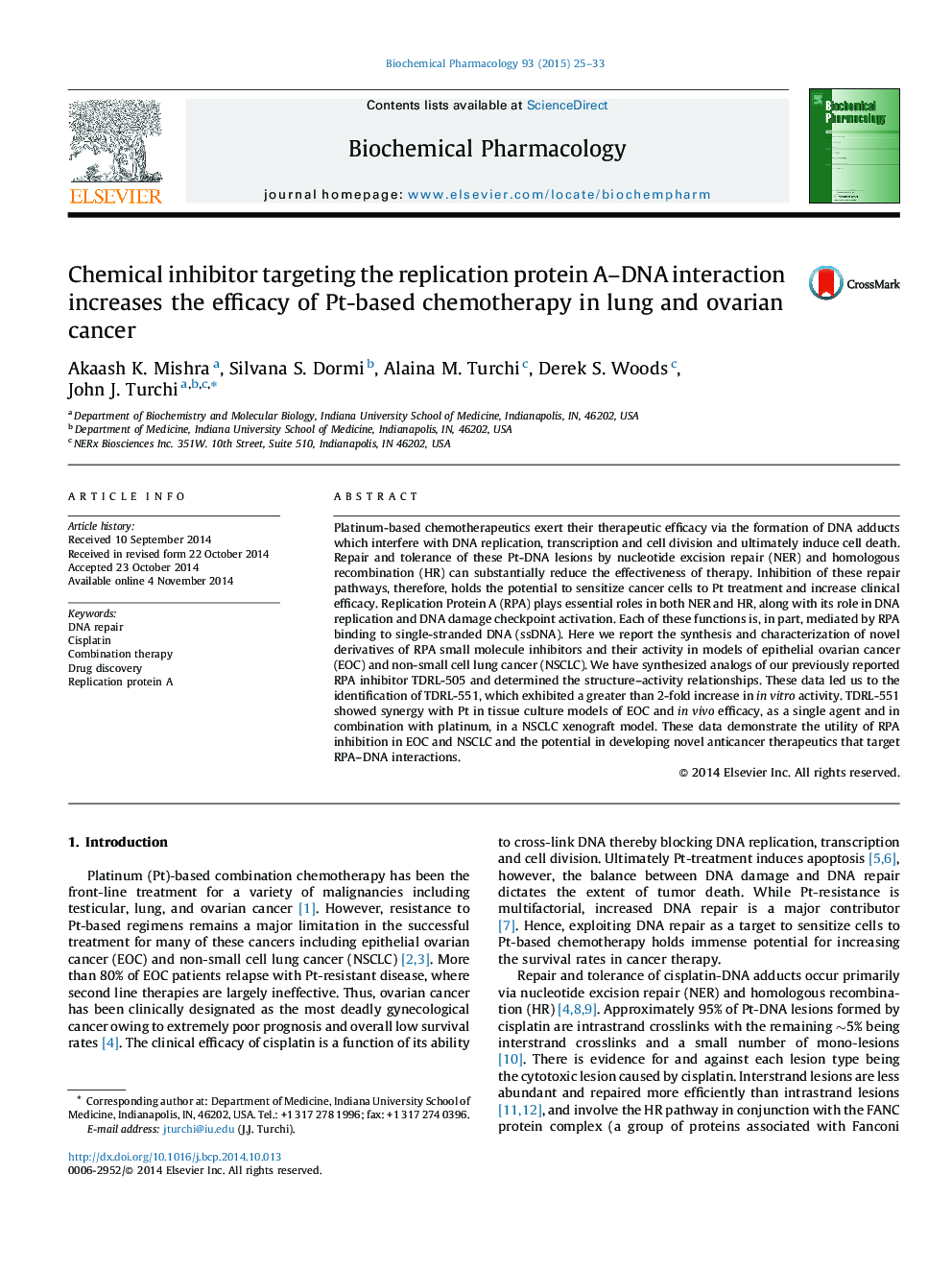| کد مقاله | کد نشریه | سال انتشار | مقاله انگلیسی | نسخه تمام متن |
|---|---|---|---|---|
| 2512229 | 1118330 | 2015 | 9 صفحه PDF | دانلود رایگان |

Platinum-based chemotherapeutics exert their therapeutic efficacy via the formation of DNA adducts which interfere with DNA replication, transcription and cell division and ultimately induce cell death. Repair and tolerance of these Pt-DNA lesions by nucleotide excision repair (NER) and homologous recombination (HR) can substantially reduce the effectiveness of therapy. Inhibition of these repair pathways, therefore, holds the potential to sensitize cancer cells to Pt treatment and increase clinical efficacy. Replication Protein A (RPA) plays essential roles in both NER and HR, along with its role in DNA replication and DNA damage checkpoint activation. Each of these functions is, in part, mediated by RPA binding to single-stranded DNA (ssDNA). Here we report the synthesis and characterization of novel derivatives of RPA small molecule inhibitors and their activity in models of epithelial ovarian cancer (EOC) and non-small cell lung cancer (NSCLC). We have synthesized analogs of our previously reported RPA inhibitor TDRL-505 and determined the structure–activity relationships. These data led us to the identification of TDRL-551, which exhibited a greater than 2-fold increase in in vitro activity. TDRL-551 showed synergy with Pt in tissue culture models of EOC and in vivo efficacy, as a single agent and in combination with platinum, in a NSCLC xenograft model. These data demonstrate the utility of RPA inhibition in EOC and NSCLC and the potential in developing novel anticancer therapeutics that target RPA–DNA interactions.
A small molecule targeting RPA can block NER catalyzed repair of cisplatin-DNA damage, HRR and DNA replication, resulting in single agent anti-cancer activity and synergy with platinum-based therapies.Figure optionsDownload as PowerPoint slide
Journal: Biochemical Pharmacology - Volume 93, Issue 1, 1 January 2015, Pages 25–33